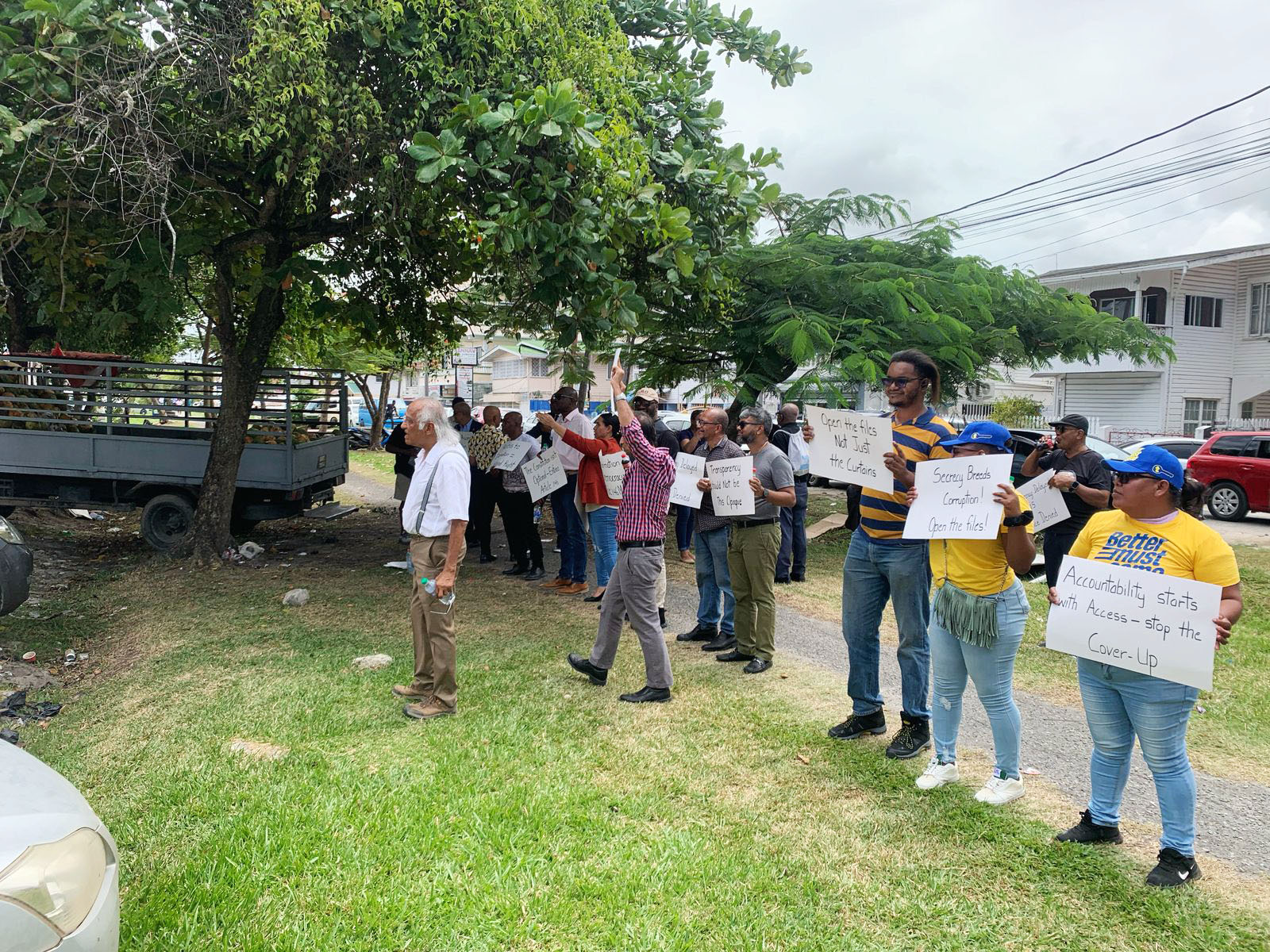Guyanese businesses are paying 40 percent taxes on operating profits for commercial activities. In contrast, the oil companies enjoy a tax-free ride on their oil profits. For the oil production lifecycle, from the preparation for oil production to when the oil is finally sold, the oil companies pay no taxes.
The oil companies have business tax exemptions from the raw materials used to enable pumping of oil. Such items as imported steel pipes, cement, protective paints, and so on, are tax-exempt. They also pay no taxes on any oil profits earned. This is in contrast to regular Guyanese businesses that are subject to taxes on listed raw materials and final profits tax. The reason for this dual tax system, one for taxation of locals and zero taxes for foreign oil companies is because some experts say Guyana’s tax laws and constitution were over-ridden by the 2016 Stabroek Block Contract. What is even more alarming is the possibility that oil companies may be eligible to use tax receipts or certificates from the Government of Guyana, obtained through the payments the Guyana Minister made on their behalf from Guyana’s share of production, to receive a tax-credit in the US for taxes they never actually paid in Guyana.
In a press release dated March 10, 2021 the Ministry of Natural Resources stated as of February 5th, 2021 the total earned from oil in the Stabroek Block was US$267.7 million dollars. Without royalties the amount was US$246.5 million. We know that the oil companies can expense up to 75% of oil revenues and Guyana receives a 2% royalty included as an expense. Guyana and the oil companies split the remaining revenues as profit share, with each receiving 12.5 %. Using the information presented, we can assume the 12.5% profit share by the oil companies is US$246.5 million. If we use the 40% tax rate that applies to commercial activities in Guyana, the oil companies should have paid approximately US$99 million (40% times US$246.5 million) in taxes. This is revenue lost to Guyana with a long list of basic needs.
To put this in perspective, the average Guyanese pensioner receives about US$1,400 a year. If we assume there are 59,000 pensioners in Guyana, then US$99 million would enable an additional payment of US$1,600 per pensioner, more than doubling the amount pensioners receive today. The pensioners during their working years contributed to building Guyana’s infrastructure by paying taxes that enable building of our roads and bridges, paying for the airports and other landing ports, etc. How do we explain to pensioners that the oil companies, who will make billions in US profits off oil, are allowed to use our airports, roads, wharves and other infrastructure and services for free? Pensioners who worked most of their lives to pay for Guyanese infrastructure should question this unfairness.
Under the terms of the 2016 Stabroek Block Contract, the Minister of Natural Resources must pay the taxes calculated, estimated at US$99 million, on behalf of the oil companies. The Minister must then issue Guyana’s Tax Certificates that the oil companies can then use to file their tax returns and potentially claim a Foreign Tax Credit (FTC). The FTC can be used by the oil companies to get a tax refund from the country where they are registered as a corporation, thus reducing their US taxes. This may apply to US companies – Exxon and Hess. If Guyana’s corporate tax rate on commercial activities is 40 percent and the US corporate tax rate is 21 percent, the US Contractor-companies may be able to make a side income of 19 percent as a result of the 2016 Stabroek Block contract. Using the estimated US$99 million taxes that were not paid, that means the FTCs issued by the Government of Guyana could enable the oil companies to take home an extra US$19 million from their foreign governments.
There needs to be additional investigations to find out if indeed the oil companies are using the FTCs issued by Guyana to receive the estimated US$19 million US Foreign Tax Credit. If it turns out that is so, then a case may be made that the oil companies should return that money to the Guyana Revenue Authority. If the oil companies’ intention is to use the tax receipt from the Government of Guyana for a foreign tax credit, the US tax laws were never intended to allow the oil corporations to double-dip. This is a very serious matter under the US tax Code Section 482. Guyana’s taxes should be paid as per Guyana’s tax laws to be spent on behalf of its citizens, not on behalf of the rich oil companies.
Dr. Ganga Ramdas, OGGN, Retired Professor of Business & Economics at Lincoln University, USA










